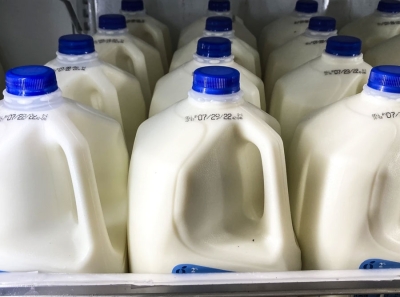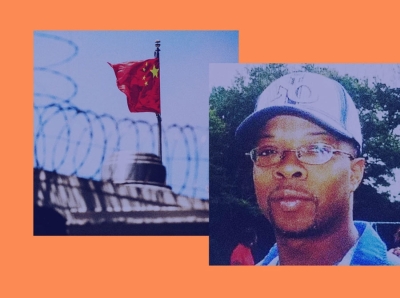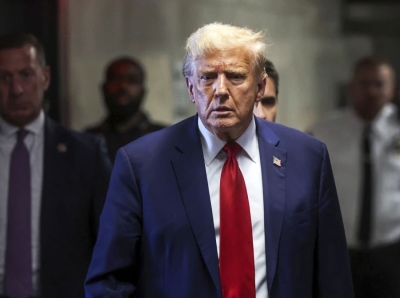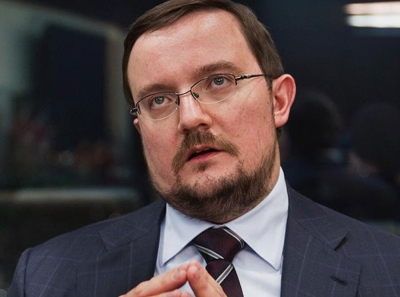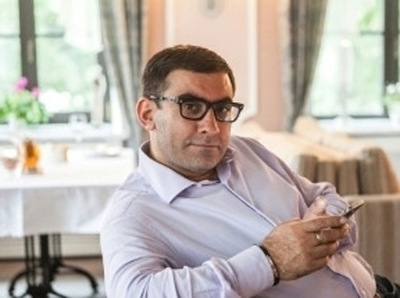Farmers’ protests: what’s wrong in the sector?
After last summer’s protests by mainly Eastern European farmers against cheap grain from Ukraine, farmers in Germany, France and other countries have been blocking motorways in protest at high fuel prices, new regulations and subsidy cuts in recent weeks. Brussels has now reacted by postponing a requirement to keep four percent of arable land fallow for environmental reasons. Europe’s press discusses the farmers’ situation and motives as well as potential responses.
CAP lacks true impact
El País calls for a new subsidy key:
“The current situation can only be overcome in agreement with Brussels and not with indiscriminate attacks on the Common Agricultural Policy (CAP), as was done in an irresponsible way during the recent protests. ... Under no circumstances should the compatibility of agriculture with the fight against climate change be called into question. ... But the CAP does need to be rethought to ensure an effective distribution of its 378 billion euros (2021-2027). So far, 20 percent of landowners have received 80 percent of the direct payments. ... EU agricultural policy has no real impact on the countryside, but is confined to fulfilling the demands of agricultural organisations which do not represent the interests of the population.”
In the stranglehold of lobbies
The farmers’ protests do not deserve to be referred to as such, NRC columnist Caroline de Gruyter complains:
“When the EU’s Common Agricultural Policy was first launched in 1962, farmers were given money to produce goods. ... After a while there was so much subsidised food that farmers were paid not to produce or to sell surpluses to Africa. Today we have a different system: the market regulates production, but farmers receive subsidies per hectare of land. The result: the agricultural lobby has a stranglehold on politics and is driving voters into the arms of the radical right. The small farmers are left behind. European agricultural policy needs fundamental reform, and now.”
Cut subsidies!
Magyar Hírlap demands drastic measures from Brussels:
“The need for cuts is unquestionable. ... Farmers in the EU — especially in Western Europe — have grown comfortable thanks to massive subsidies: despite all the development measures and the huge sums of money that have flown into the sector, they are not as efficient as they could be. They could compensate for lower prices with higher yields. ... They are the beneficiaries of an outdated subsidy system. Not just agricultural policy but they, too, need to move on. And if they can’t, then they should just stop.”
Unhealthy balance of power
The argument that consumers are not prepared to pay more for food is unfounded, De Standaard notes:
“Farmers have no say in the price they get for their products. And what they get says something about the balance of power in the food chain. The other players are simply stronger: the companies that process the products, the wholesalers, the sellers. ... And now consumers are being blamed. They don’t want to pay more for their food, the supermarkets say. But since when do consumers decide how much they pay for their leeks or chops?”
Communication with all players crucial
Kathimerini warns:
“Forces of the extreme right which have always been against ‘green’ policies and which also oppose the EU’s support of Ukraine are in prime position to exploit farmers’ anger. ... If these forces increase their influence in the European Parliament election in June, then the battle against climate change will become even more difficult, with farmers facing even more catastrophes. Aside from the measures that will be taken in Brussels and all the member-states’ capitals, it is crucial that there be the appropriate communication between policy makers, farmers and all citizens as to the importance of agricultural production and the ways in which this can evolve for the common good.”
Politicians sacrificing prosperity
The daily Die Presse criticises the farmers’ protests for damaging the European Economic Area as a whole:
“This major farmers’ revolt of 2024 is already having political consequences. And far-reaching ones at that. On Tuesday, Emmanuel Macron declared that the European Commission’s negotiations with the four Mercosur states of Argentina, Brazil, Paraguay and Uruguay on a free trade agreement had been broken off. ... Europe’s politicians are sacrificing the prosperity of the silent majority for the sake of the agitprop of the few and loud. Far more jobs in Europe depend on services, medical products, machinery and yes, the automotive industry, than on increasingly mechanised agriculture.”
Contradictory, unrealisable demands
Don’t expect the protests in France to end quickly, advises Paul Ackermann, Le Temps correspondent in Paris:
“One of the limitations of the movement is that there is not just one French agriculture. There are several French agricultures, with different fates. Their demands are so complex, not to say contradictory, that the government will never be able to fulfil all of them. Even if it wanted to. Unless, of course, this multitude of divergent and therefore unrealisable demands leads to the movement having no choice but to continue, like the yellow vests protests in their day.”
United front unlikely
News.bg asks whether Europe’s farmers will now join forces to up the pressure on Brussels:
“The answer is: probably not. In addition to their common interests, farmers in the various EU countries also have their own individual interests to attend to. Agriculture is perhaps the trickiest economic sector in the EU, and certainly the one that is most dependent on the policies of both national governments and the European Commission. European agriculture is subject to quotas, subsidies and regulations, and is highly sensitive. Meeting the demands of farmers in one country automatically puts their counterparts in other countries at a disadvantage.”
Stop using Brussels as a scapegoat
Danish politicians need to be frank with the farmers, demands Der Nordschleswiger:
“At the European level, democratically elected Danish politicians have long contributed to the formulation of an agricultural and climate policy which has resulted in massive changes in subsidies and regulation of the sector. ... Here in Denmark they then pretend that it’s ‘Brussels’ that wants this and that, and that they are doing all they can to minimise the impact on agriculture in this country. This is dishonest, it fuels the fatal myth of a disengaged Brussels that supposedly makes decisions over our heads — and above all it won’t help our agriculture to tackle the challenges that lie ahead.”
High risk for low profit
De Standaard sympathises with the farmers’ frustration:
“Just like industry, European agriculture is facing an enormous transformation. It has to become carbon neutral, restore the balance with nature and keep up in the merciless global competition. It’s no wonder that individual farmers feel short-changed. And when the financial risk is mainly on their shoulders while the big profit margins go to those higher up the chain, it’s no wonder that their sense of well-being is below the Flemish average.”
Farming is not about charity
Farmers should be seen more as private entrepreneurs, comments journalist Toms Lūsis angrily on Tvnet:
“The summer was too dry? Hey, state, give me some compensation! The summer is too wet? Where’s my compensation? It hailed? Compensation, please! The state simply pulls out its wallet. Then next year, when the weather is perfect and the farmers have record harvests, they celebrate. ... They don’t owe the state anything. ... Farming is not a charity for the entire state, run by altruists with the sole aim of feeding a starving population. The rest of Latvia doesn’t have to be constantly and unconditionally grateful to farmers. It’s a private business whose main purpose is ultimately to make money.”
Whipped by the weather, pampered by payouts
La Stampa calls on the farmers to make realistic demands:
“The riots that are spreading from one country to another, crossing borders even though the pretexts sound improvised, are paradoxical in many respects. Yes, farmers have to toil in the dirt amid the stench of manure, as our minister Lollobrigida put it, and their incomes are vulnerable to all the vagaries of the climate, which are likely to increase in the future. However, the farming profession has also been spoilt by decades of generous public support. ... Precisely because the Common Agricultural Policy, which is so maligned in the tractor parades, is on balance quite generous, one cannot expect it to hand out more funds without getting anything in return.”
Three options, but only one makes sense
Historian Benoît Bréville describes three future scenarios for farmers in Le Courrier:
“They could disappear due to the impact of the European division of labour and the accession of large grain-producing nations to the EU. They could survive by following the path of unbridled industrialisation dictated by bureaucracies and investment funds — but at the expense of people and the environment, which is already leading to uprisings here and there. Or they can fight to impose a form of agriculture based on small farming, which resumes its function as provider of food while at the same time ensuring the independence of its workers. ... A large number of livestock breeders and farmers are striving for this, consumers want it, and common sense demands it in the long term.”
Imports and Green Deal taking toll on farming
2023 was an extremely difficult year for farmers, Gazeta Wyborcza notes with sympathy:
“Production costs rose while selling prices for agricultural products dropped, farmers were unable to invest in the development of their farms and the mood in rural areas deteriorated. ... Not only because of the flood of agricultural goods from Ukraine. It was also a year of changes to agricultural subsidies and the Common Agricultural Policy for which no one in Poland was really prepared. ... The Green Deal was supposed to be the European Commission’s answer to climate change, and to accommodate consumers who want organic food with better conditions for farm animals. ... For farmers, however, this has meant higher costs and lower yields.”
Brussels’ negligence to blame
For Efimerida ton Syntakton, it’s the politicians who are to blame for the discontent:
“The question that European farmers are indirectly asking is clear: who pays the costs of agriculture going green? At the moment it’s the farmers themselves, but also the consumers, who see how food prices are skyrocketing. The EU leadership and the governments of the 27 countries have created an unnecessary, artificial resistance in agriculture to the very real need for more environmentally friendly farming methods. Now they are reaping what they have sown. And that includes a gift to the far right, which is taking great pleasure in capitalising on the anger of European farmers.”
Better distribution of subsidies needed
The talks initiated by EU Commission President Ursula von der Leyen are well-intentioned but not enough, De Morgen comments:
“The hot potato will be postponed until after the European elections. A risky move, especially since according to the polls the far right Identity and Democracy [ID] has a chance of becoming the third largest group in the European Parliament. ... With European agricultural subsidies totalling 386.6 billion euros, no EU farmer should be suffering. But if they are, there’s something wrong with the distribution. The gap between big agribusinesses, which pocket most of the money, and small farmers remains huge. The EU had better bridge this gap quickly, because with all the other crises it faces Europe could do without a farmers’ war.”
Concessions guaranteed
Dilema Veche is certain that Europe’s farmers will be able to claim some victories this year:
“The farmers’ protests have also made politicians rethink their stance. This has led to environmental reforms being postponed or put on hold. In the upcoming European elections, every politician, regardless of their orientation, wants to win the votes of farmers. Who will get them remains to be seen, but one thing is certain: depending on the outcome of the European elections, we will see how quickly the reform of European agriculture progresses and how much money farmers have to receive from the state to be satisfied.”
Populists cashing in on the protests
La Repubblica looks at who is fuelling the movement:
“The farmers’ protest has become a security issue. ... And not because the demonstrations are leading to unrest everywhere — according to one report so far there are two dead and dozens injured — but because analysts couldn’t help but notice the nature of the ‘contagion’: concrete and deeply felt issues are certainly the basis of the discontent. ... What is worrying, however, is the force with which the timing and modalities of the protest have expanded. And above all, who is stoking this protest: a section of the far right with a red-brown tinge whose common denominator is anti-Europeanism and anti-environmentalism.”
Gap between city dwellers and farmers
The tractors were also rolling in Vilnius, but the city’s residents have no sympathy with the farmers, LRT observes:
“’Any entrepreneur would envy you for the support, incentives and subsidies you receive, not to mention the teachers or doctors,’ says an exasperated resident on Gediminas Street. The farmer from the tractor counters: ‘And I feed you.’ The protesting farmers have divided not just Vilnius but the whole of Lithuania, albeit unintentionally. ... The city dwellers wonder what the farmers are actually fighting against, while they pour Polish milk into a glass and fry Moroccan potatoes.”
French hypocrisy
France’s agricultural policy is full of contradictions, L’Opinion criticises:
“’We are all farmers’. Yes, when we demand quality food products that are ‘made in France’, but no, when the culture of low prices fed by the big retail chains eats up profit margins to the point of bankruptcy. Yes, when we demand local products; no, when the principle of ‘not in my backyard’ jeopardises certain activities. ... Yes, in the pride of belonging to an agricultural powerhouse, the key to national sovereignty; no, in the indifference to the excessive standards, costs, prohibitions and controls that are destroying entire sectors. ... These inconsistencies have a high price. High for the farmers, but even higher for the country as a whole.”
Many farmers, small farms
Farmers and truckers in Romania are demonstrating and blocking border crossings to Ukraine and the Black Sea port in Constanța. They criticise that Ukrainian grain is still making its way into the Romanian market and demand the payment of outstanding subsidies. Jurnalul National looks behind the scenes:
“Romania has the most farmers in the EU — 3.5 million — with 90 percent of farms cultivating areas covering less than five hectares. ... Problems such as underfunding, poor access to irrigation and mechanisation are causing competition problems, which are already being exacerbated by competition from its oversized neighbour Ukraine. ... Take sugar beet production: in 2023/2024 Ukraine will deliver around 650,000 tonnes to the EU — 30 times the amount it delivered before 2022.”
The problem has a common root
According to Krónika, which is partially funded by the Hungarian government and directed at the Hungarian minority in Romania, grain imports from Ukraine are the main cause of discontent among EU farmers:
“The German, Romanian and Polish farmers’ demands have common roots. ... The problem lies in the dilettantism of the politicians in Brussels, who have irresponsibly allowed cheap Ukrainian agricultural products that do not meet EU standards to enter the markets of EU member states duty-free as a way of helping Ukraine. It’s like a non-swimmer trying to save a drowning person, and they both drown.”
Think European, think positive
The protests pose a challenge for the EU, Ouest-France notes:
“The wave of demonstrations is grist to the mill for all Eurosceptic movements, which are quick to make national preference their battle horse in the European elections. ... But the situation of British agriculture, which is suffering after Brexit, casts doubt on these demands. The real answers must be sought in Brussels. ... The urgently needed generational change can only be achieved by restoring trust. This also requires a new rhetoric from farmers’ organisations, especially COPA, the Committee of Professional Agricultural Organisations, which brings together the most important European farmers’ groups. They need to offer the younger generations prospects and a future.”


